Links to external sources may no longer work as intended. The content may not represent the latest thinking in this area or the Society’s current position on the topic.
Energy-environment-society interactions
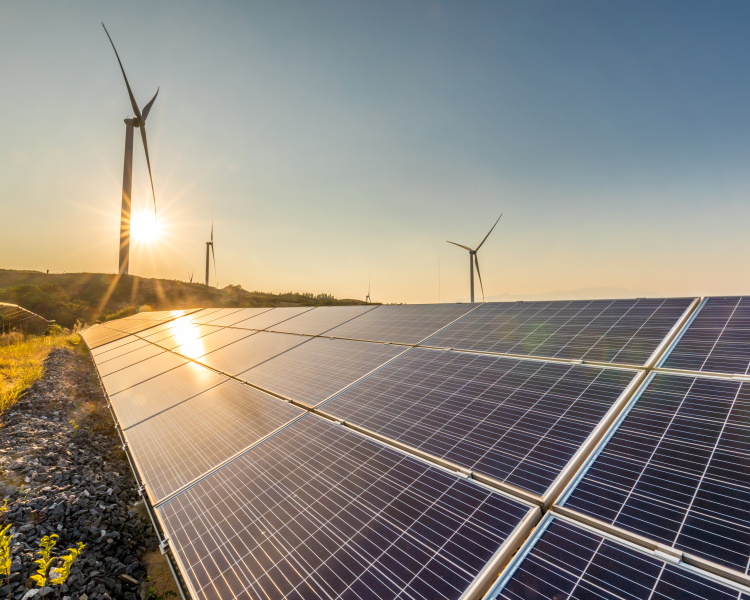
Science+ meeting organised by Dr Alona Armstrong and Professor Nicola Beaumont.
This meeting gathered thought-leaders from across disciplines and sectors to better understand the coincidental ecosystem effects of wind, solar and marine energy infrastructure and the implications for society. Science knowledge gaps were highlighted, a future research roadmap developed, policy needs identified and disparate researchers and practitioners in the emerging energy-ecosystem field united to promote a more sustainable energy transition.
More information about the schedule of talks and speaker biographies are available below. Speaker abstracts are also available below. Speaker presentations were recorded and are available at the top of the page.
Attending this event
This meeting has taken place.
Enquiries: contact the Scientific Programmes team
Organisers
Schedule
Chair

Dr Dee Hennessy, Creative Exchange, UK

Dr Dee Hennessy, Creative Exchange, UK
Following a career in theatre and the arts, Dee Hennessy has become a leading group creativity facilitator and coach. She is also a researcher and social innovator. Since 1999 she has worked with governments, public sector agencies, universities, research councils, companies, third sector organisations and partnerships to develop strategies, ideas, innovative solutions, teams and individuals. She does this by designing and delivering new formats and unlikely, unexpected and uniquely effective processes for getting people involved, energised and focused. Dee has facilitated successful engagement and impact workshops, strategy events, seminars, sandpits, team development events, meetings and conferences. Her PhD and related academic research introduced and tested innovative and robust methods for knowledge exchange and she is now focused on the possibilities of breaking new ground in this new world of virtual encounters.
|
Science, policy and the path to net zero
Chris will cover:
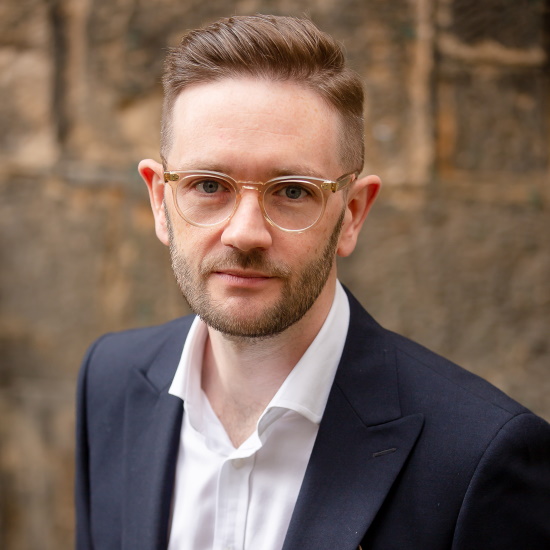
Mr Chris Stark, Climate Change Committee, UK

Mr Chris Stark, Climate Change Committee, UKChris Stark is the Chief Executive of the UK Climate Change Committee (CCC), the public body tasked by the Climate Change Act to be the independent authority on tackling climate change. Chris leads a team of analysts and specialists, offering expert insight into the challenges of reducing UK emissions and adapting to the changing climate. Chris led the CCC’s work in 2019 to recommend a new ‘Net Zero’ target for the UK – now brought into law. He speaks regularly on the transition to a zero carbon economy and the need to confront climate change with urgency. Chris has wide experience in government. He has designed economic policy in Whitehall, including in HM Treasury and the former Department for Business, Innovation and Skills. He was previously Director of Energy and Climate Change in the Scottish Government, leading the development of the Scottish energy and climate strategies. Twitter: @ChiefExecCCC |
|
The value of our ecosystems
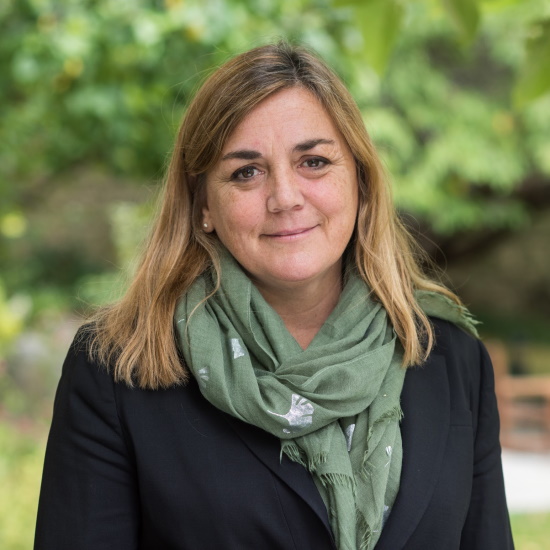
Professor Katherine Willis CBE, University of Oxford and Natural Capital Committee, UK

Professor Katherine Willis CBE, University of Oxford and Natural Capital Committee, UKProfessor Katherine (Kathy) J Willis, CBE, took up the role as Principal of St Edmund Hall on 1 October 2018. Kathy is also Professor of Biodiversity in the Department of Zoology, University of Oxford. Prior to this, between December 2013 and September 2018 Kathy was Director of Science at the Royal Botanic Gardens, Kew, where she spearheaded the launch of Kew’s Science Strategy 2015-2020. She also previously held the Tasso Leventis Chair of Biodiversity at Oxford and was founding Director of the Oxford Martin School Biodiversity Institute. Kathy’s research interests focus on the relationship between long-term ecosystem dynamics and environmental change. She has published extensively being author of over 100 scientific publications, including the landmark book The Evolution of Plants, now in its second edition. She has also written several popular science books (including Plants: From Roots to Riches and Botanicum) and she explored the importance of plants through the BBC Radio 4 series Plants: From Roots to Riches. In August 2015, Kathy was awarded the prestigious Michael Faraday Prize from the Royal Society for her excellent work in science communication and in February 2016 she was appointed to the Natural Capital Committee, an independent advisory body to the UK Government which will take forward the implementation of the new 25-year Environment Plan. Kathy was awarded a CBE in the Queen’s Birthday honours list in June 2018. |
|
Setting the scene: Energy-Environment-Society interactions

Dr Alona Armstrong, Lancaster University, UK

Dr Alona Armstrong, Lancaster University, UKAlona is a Senior Lecturer within Lancaster Environment Centre, Deputy Director of Energy Lancaster, and currently holds a Natural Environment Research Council Industrial Innovation Fellowship. Her research and innovation activities focus on developing understanding of the interactions between energy infrastructure and the environment. She uses this understanding to inform policy and practice, with the underpinning aim of promoting the delivery of environmental benefits, beyond that of low carbon energy, from the energy transition. Working collaboratively with stakeholders from across sectors is central to her work. 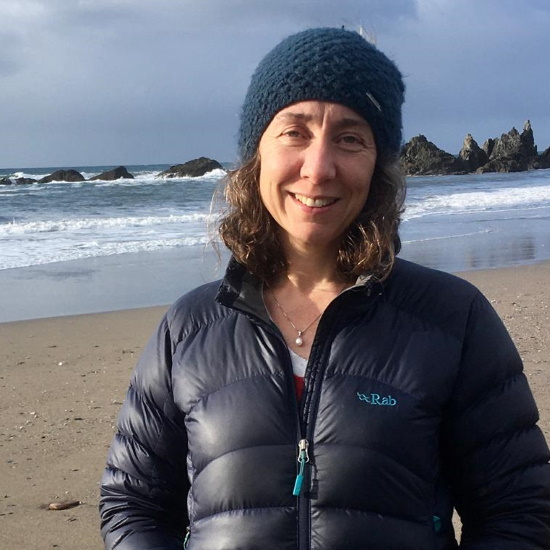
Professor Nicola Beaumont, Plymouth Marine Laboratory, UK

Professor Nicola Beaumont, Plymouth Marine Laboratory, UKProfessor Nicola Beaumont is an internationally recognised specialist in the assessment and valuation of ecosystem services. She has a sustained publication record (Google H-index 27, 7,800+ cites) and has acted as PI or co-I on an extensive range of projects. Nicola has managed more than £3.8million of research funding as PI including leading two large (£1.2million+) multi-institute collaborative projects. She considers the communication of research to academics, policy makers, managers and user groups to be a critical aspect of her career. Nicola’s research has recorded impact in the policy sphere, including underpinning the designation of marine conservation zones and shaping government policy such as the Marine Bill and the Natural Environment White Paper. Nicola sits on several international and national committees, including the NERC Science Committee and the UK Productive Seas Evidence Group (PSEG) reporting directly to UK government. |
Chair

Dr Dee Hennessy, Creative Exchange, UK

Dr Dee Hennessy, Creative Exchange, UK
Following a career in theatre and the arts, Dee Hennessy has become a leading group creativity facilitator and coach. She is also a researcher and social innovator. Since 1999 she has worked with governments, public sector agencies, universities, research councils, companies, third sector organisations and partnerships to develop strategies, ideas, innovative solutions, teams and individuals. She does this by designing and delivering new formats and unlikely, unexpected and uniquely effective processes for getting people involved, energised and focused. Dee has facilitated successful engagement and impact workshops, strategy events, seminars, sandpits, team development events, meetings and conferences. Her PhD and related academic research introduced and tested innovative and robust methods for knowledge exchange and she is now focused on the possibilities of breaking new ground in this new world of virtual encounters.
|
Trade-offs between greenhouse gas emissions, climate regulation and ecosystem services within a transport context
Transitioning from internal combustion engine private vehicles in favour of electric and hydrogen alternatives is an essential part of the solution to meet net zero in the UK by 2050. Adapting low carbon transport will result in an increase in electricity demand which will impact both ecosystem services (ES) and natural capital (NC), however long term environmental impacts are likely to remain lower than their conventionally fuelled alternatives. Robust projections of societal energy demands post low carbon transition are required to ensure adequate power generation is installed. By projecting energy demand for electric and hydrogen cars, buses and trains, the spatial requirements of additional renewable energy (onshore/offshore wind and solar), nuclear and fossil fuels, on ES and NC can be predicted. Results will discuss the mix between hydrogen and electric transport types in the future and how this will be dependent on geographical location and resource availability. To reduce the requirements for additional electricity and for carbon outputs to decrease, minimising the impact on NC and ES, policy makers need to focus on encouraging a modal shift towards low carbon public transport and to ensure a more sustainable route to decarbonising transport. 
Dr Kathryn G Logan, University College Dublin, Ireland

Dr Kathryn G Logan, University College Dublin, IrelandDr Kathryn G Logan is an Energy Policy Researcher at University College Dublin, Ireland. In this role, Kathryn takes a multidisciplinary approach to bring together research focusing on energy systems, energy management and energy in society to inform policy and research objectives. Kathryn completed her PhD in Environmental Science at the University of Aberdeen, Scotland. Kathryn’s PhD project involved applying quantitative analysis methods within the NERC ADVENT project. Her project was titled 'Investigating the Impact of the Electrification of Transport to Reduce Carbon Emissions on Natural Capital,' which focused on infrastructure changes, including electricity supply, and the related trade-offs between greenhouse gas emission reductions, climate regulation and the potential impact upon ecosystem services. Kathryn had the opportunity to work as a visiting researcher at Tsinghua University (China) and Kyoto University (Japan) to understand what lessons can be learned from other countries regarding policy, decarbonisation and low emission transport. |
|
|
Ecosystem impacts of floating photovoltaic systems on water bodies
Floating solar photovoltaic installations are an emerging form of solar energy deployed on varying types of water bodies globally. Deployments have proliferated in recent years, particularly in land-scarce areas, as the drive to decarbonise the energy mix intensifies. However, the potential ecosystem opportunities and trade-offs of floating solar photovoltaic installations remain unclear, often acting as a barrier to deployment and potentially posing a threat to ecosystems. In this talk Giles will outline:
Given the need to rapidly develop understanding, in light of the anticipated growth of floating solar, this talk pin points the knowledge gaps and improvements critical to ensuring installations minimise ecosystem threats and maximise opportunities, safeguarding overall sustainability. 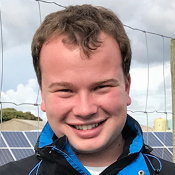
Mr Giles Exley, Lancaster University, UK

Mr Giles Exley, Lancaster University, UKGiles is a doctoral researcher at Lancaster University, investigating the effects of floating solar on water body process and function. From a systematic review of the impact of water cover analogues to uncertainty framework modelling and in-situ monitoring, Giles’ research is helping to unlock the potential for floating solar in the UK and abroad. Giles is particularly keen to engage stakeholders with his research in order to fully understand the industrial context and derive maximum impact. He organised a stakeholder workshop to prioritise the opportunities and threats of floating solar, bringing together industry, policy and NGOs partners. He also took a 6 month break within his PhD to complete a research and innovation project that culminated in the co-development of two reports on floating solar with four UK water companies. In addition, Giles has also undertaken an industry placement with a UK water company as part of his CASE studentship. |
|
|
Spatially explicit optimisation model for investigating the land use implications of future energy scenarios
To tackle the global climate emergency, the UK has committed to a legally binding net-zero emissions target for 2050. Policy-makers need to understand where new electricity generation may be located to determine the impacts and feasibility of different transitions to net zero. Existing energy systems models however tend to have limited spatial resolution. Without incorporating geospatial issues into energy system modelling, the cost of energy transitions may be misrepresented and the wider impacts on the natural environment, at a local, regional and landscape level, overlooked. A national-scale spatially disaggregated integrated model has been developed to determine the land use change impacts of transitioning to a low carbon energy system. The modelling framework uses various spatial optimization techniques to determine the least cost locations for multiple renewable energy technologies. By incorporating values from the environmental economics literature, the impact of different potential energy mixes on the provision of ecosystem services can be considered and the socially optimal locations for energy infrastructure identified. 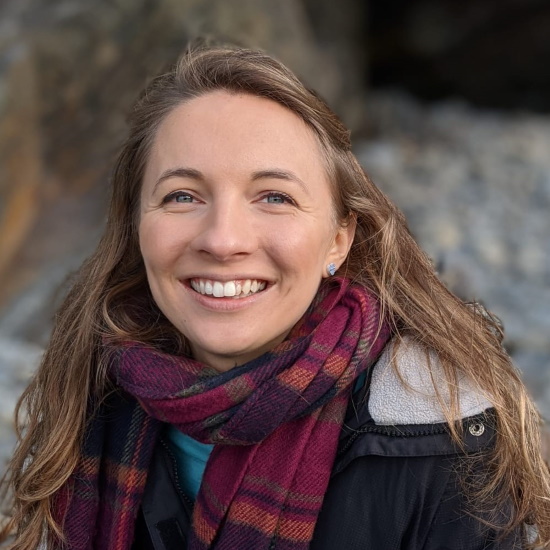
Ms Gemma Delafield, University of Exeter, UK

Ms Gemma Delafield, University of Exeter, UKGemma Delafield is currently pursuing a PhD in Environmental Economics at the University of Exeter’s Land, Environment, Economics and Policy Institute (LEEP). She is applying quantitative analysis methods to the problem of designing policies for future energy production in the GB. The focus of her research is upon determining where in GB to locate future generation and transmission infrastructure particularly with regards to the ecosystem service impacts resulting from different spatial configurations. |
|
|
The ecology and sustainability of solar energy across natural and human-dominated landscapes
Ambitious greenhouse gas emission reduction targets have underscored the need for a rapid global energy transition from carbon-intensive energy systems to renewables, and arguably, more local energy systems. Such a transition requires changes not only in global energy infrastructure but also across interconnected food, water, and land systems. One critical question remains: how will we meet our global renewable energy goals while maintaining food security and the conservation of ecosystem services and species that humans depend on? Using interdisciplinary research methods, Dr Hernandez will discuss impacts of ground-mounted solar energy infrastructure on plants, soils, and ecosystem services and the role that siting and procurement of energy infrastructure and resources, respectively, plays in achieving localized, renewable energy goals. Next, Dr Hernandez will discuss the role of techno–ecological synergy (TES), a framework for engineering mutually beneficial relationships between technological and ecological systems, as an approach to augment the sustainability of solar energy across diverse recipient environments, including land, food, water, and built-up systems. Solar energy is projected to meet a lion’s share of the global energy demands by 2050. Dr Hernandez’s research elucidates how such a build-out can be achieved sustainably on an increasingly full and imperiled Earth. 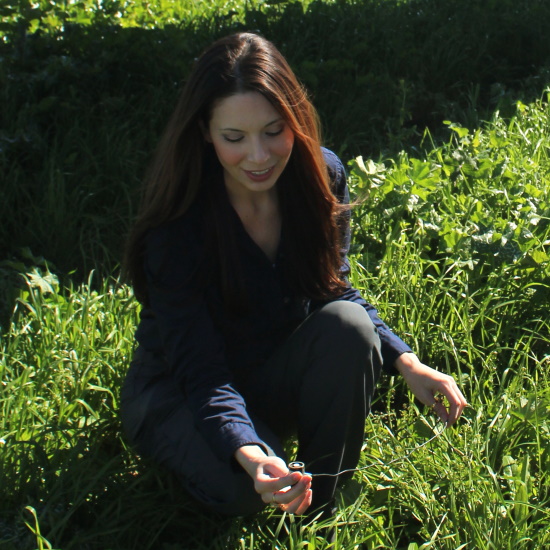
Dr Rebecca R Hernandez, University of California, Davis, USA

Dr Rebecca R Hernandez, University of California, Davis, USADr Hernandez is Assistant Professor of Earth System Science and Ecology in the Department of Land, Air and Water Resources at UC Davis. Dr Hernandez’s research seeks to understand environmental impacts of carbon-intensive and renewable energy systems via influences on land, climate, and biodiversity. Dr Hernandez’s methods are interdisciplinary, but typically involve field-intensive work, employing traditional ecological field methods as well as environmental sensor and imaging technology. Other methods are data-intensive, employing geographic technologies and meta-analysis. Dr Hernandez’s research has been published in Nature Sustainability, Nature Climate Change, Proceedings of the National Academy of Sciences, Frontiers in Ecology and the Environment, Environmental Science and Technology and Renewable and Sustainable Energy Reviews and has been featured in over 100 news outlets including the Washington Post, National Geographic, NPR, Forbes, and Scientific American. She is the recipient of the E.O. Wilson Award and the AGU Global Environmental Change Early Career Award. |
Chair

Dr Dee Hennessy, Creative Exchange, UK

Dr Dee Hennessy, Creative Exchange, UK
Following a career in theatre and the arts, Dee Hennessy has become a leading group creativity facilitator and coach. She is also a researcher and social innovator. Since 1999 she has worked with governments, public sector agencies, universities, research councils, companies, third sector organisations and partnerships to develop strategies, ideas, innovative solutions, teams and individuals. She does this by designing and delivering new formats and unlikely, unexpected and uniquely effective processes for getting people involved, energised and focused. Dee has facilitated successful engagement and impact workshops, strategy events, seminars, sandpits, team development events, meetings and conferences. Her PhD and related academic research introduced and tested innovative and robust methods for knowledge exchange and she is now focused on the possibilities of breaking new ground in this new world of virtual encounters.
|
Social and spatial dimensions of the siting of renewable energy infrastructures
Decarbonising energy systems is as much a social and spatial challenge as a technical or economic one. Unlike fossil fuels, renewable energy resources are geographically dispersed. This means that evolving sustainable energy systems are far less ‘out of sight, out of mind’ than the centralised, distant energy system that is a historical legacy of the 20th century. As technologies for generating power and heat are sited closer to homes and communities, social conflicts have increased over where they should go, who decides and how costs and benefits are distributed. Such conflicts, often wrongly attributed to ‘NIMBYism’, have led to calls for just transitions involving greater public participation in policy-making, as well as earlier engagement and substantial benefit provision to ‘host communities’ directly impacted by infrastructure projects. In this presentation, I will share three examples of how inter-related social and spatial dimensions of energy transitions play out in diverse technology sectors. Each case reveals ways that social and spatial dimensions are crucial to the understanding of energy transitions, and have significant implications for the decarbonisation of energy systems in ways that are extensive, rapid, legitimate and fair. 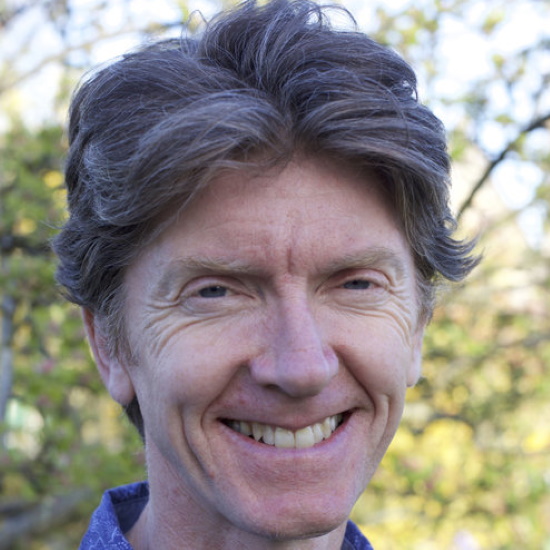
Professor Patrick Devine-Wright, University of Exeter, UK

Professor Patrick Devine-Wright, University of Exeter, UKPatrick Devine-Wright holds a Chair in Geography at the University of Exeter. Ranked in the world's top 1% of social science scholars in 2019 and 2020, he brings expertise spanning Human Geography and Environmental Psychology to the study of low carbon energy transitions. His expertise relates to public participation and community engagement with energy infrastructure siting, sense of place and energy citizenship. He is an IPCC Lead Author on Climate Mitigation, Chair of the Devon Net Zero Task Force and a non-executive Director of Exeter Community Energy. He is currently leading and contributing to several research projects funded by NERC, ESRC, ISCF and Horizon 2020 on smart local energy systems, shale gas fracking and sustainable heating. He sits on the board of academic journals including Global Environmental Change, Energy Research and Social Science, the Journal of Environmental Psychology, and Environment and Behavior. |
|
|
The expansion of offshore wind: costs and co-benefits for ecosystem services
Globally, the deployment of offshore wind is expanding rapidly. An improved understanding of the economic, social and environmental impacts of this sector, and how they compare with those of other energy systems, is therefore necessary to support energy policy and planning decisions. This talk will outline the ongoing work of the UKERC energy, environment & landscapes project which will apply ecosystem service and natural capital approaches to understand the environmental implications of changes in the UK offshore wind energy system. The impacts of offshore wind development on ecosystem services will be assessed through a qualitative process of mapping ecological and cultural parameters informed and tested using existing case study data from UK offshore wind farms, particularly those collected as part of statutory monitoring. By reporting outcomes in societal terms, the approach will help facilitate communication with decision makers and will aid in the evaluation of trade-offs such as environmental net gain and the potential for co-location with other economic activities. 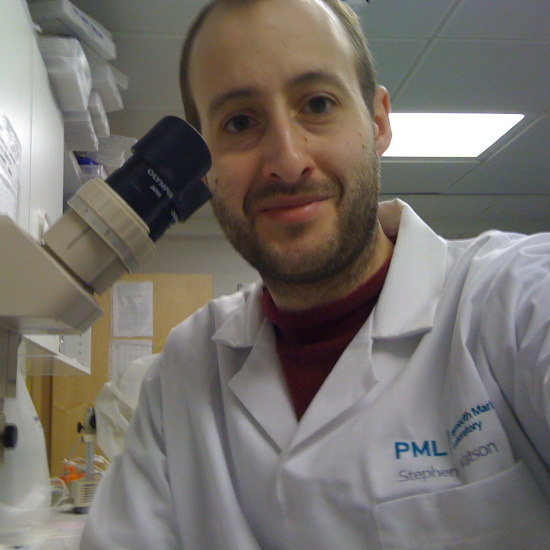
Dr Stephen Watson, Plymouth Marine Laboratory, UK

Dr Stephen Watson, Plymouth Marine Laboratory, UKDr Stephen Watson is an Ecosystem Services Scientist at PML. A marine ecologist and ecosystem services analyst by training, he is broadly interested in quantifying the often-complex interactions between anthropogenic pressures, biodiversity, ecosystem services and society in coastal, marine, terrestrial and other settings. His research utilises: ecological indicators, GIS, ecosystem models (e.g., InVEST) and methods of environmental economic evaluation. His work is highly interdisciplinary and often involves engagement with industry, regulators, businesses and the general public, and he has regularly led and supported the implementation of workshops, surveys and interviews. Before joining PML, he was a Senior Research Associate on the Solent Natural Capital Project at the University of Portsmouth and has worked on issues such as the impact of multiple stressors and tipping points on ecosystem services as part of the wider Valuing Nature Network (VNP), UK Ocean Acidification (UKOA) and Biodiversity & Ecosystem Service Sustainability (BESS) research programmes. |
|
|
Ecological consequences of renewable energy across trophic levels
Ecological consequences of wind energy are complex, and increasingly appear to extend far beyond the displacement of volant animals. In the biodiversity hotspot of the Western Ghats of India, reduction in raptor activity in areas with wind turbines result in wide ranging changes to ground-dwelling lizards. Not only were densities of lizards considerably higher in the presence of wind turbines, but lizards showed changes to a suite of phenotypic traits, from morphology and behaviour to physiology. These cascading consumptive and non-consumptive effects of wind turbines on lizards seem to be driven by a combination of predator release and density-dependent competition. In a functional sense, wind-farms effectively add a functional trophic level to the top of food webs, and their emerging impacts across the community call into question whether green energy goals (Paris agreement) and ecosystem protection (Aichi targets) can be simultaneously satisfied in critical ecosystems. 
Dr Maria Thaker, Indian Institute of Science, India

Dr Maria Thaker, Indian Institute of Science, IndiaMaria Thaker is an Associate Professor at the Centre for Ecological Sciences, Indian Institute of Science, Bangalore India. Her lab takes an integrative and comparative approach to understand phenotypic form and function. This involves exploring multi-trait variation within and between species, the functional connection between morphology, behaviour, physiology and nutrition, and the evolutionary patterns of these trait complexes. She also examines the implications of environmental change, such as urbanization and green energy, on these suites of animal responses and their consequences for ecosystems. Maria currently leads the Movement Ecology component of the newly-launched Indian Long-term Ecological Observatories program. |
Chair

Dr Dee Hennessy, Creative Exchange, UK

Dr Dee Hennessy, Creative Exchange, UK
Following a career in theatre and the arts, Dee Hennessy has become a leading group creativity facilitator and coach. She is also a researcher and social innovator. Since 1999 she has worked with governments, public sector agencies, universities, research councils, companies, third sector organisations and partnerships to develop strategies, ideas, innovative solutions, teams and individuals. She does this by designing and delivering new formats and unlikely, unexpected and uniquely effective processes for getting people involved, energised and focused. Dee has facilitated successful engagement and impact workshops, strategy events, seminars, sandpits, team development events, meetings and conferences. Her PhD and related academic research introduced and tested innovative and robust methods for knowledge exchange and she is now focused on the possibilities of breaking new ground in this new world of virtual encounters.
|
Discussion: critical research needs, barriers and accelerants
What new knowledge is required? 
Dr Kathryn G Logan, University College Dublin, Ireland

Dr Kathryn G Logan, University College Dublin, IrelandDr Kathryn G Logan is an Energy Policy Researcher at University College Dublin, Ireland. In this role, Kathryn takes a multidisciplinary approach to bring together research focusing on energy systems, energy management and energy in society to inform policy and research objectives. Kathryn completed her PhD in Environmental Science at the University of Aberdeen, Scotland. Kathryn’s PhD project involved applying quantitative analysis methods within the NERC ADVENT project. Her project was titled 'Investigating the Impact of the Electrification of Transport to Reduce Carbon Emissions on Natural Capital,' which focused on infrastructure changes, including electricity supply, and the related trade-offs between greenhouse gas emission reductions, climate regulation and the potential impact upon ecosystem services. Kathryn had the opportunity to work as a visiting researcher at Tsinghua University (China) and Kyoto University (Japan) to understand what lessons can be learned from other countries regarding policy, decarbonisation and low emission transport. 
Ms Gemma Delafield, University of Exeter, UK

Ms Gemma Delafield, University of Exeter, UKGemma Delafield is currently pursuing a PhD in Environmental Economics at the University of Exeter’s Land, Environment, Economics and Policy Institute (LEEP). She is applying quantitative analysis methods to the problem of designing policies for future energy production in the GB. The focus of her research is upon determining where in GB to locate future generation and transmission infrastructure particularly with regards to the ecosystem service impacts resulting from different spatial configurations. 
Mr Giles Exley, Lancaster University, UK

Mr Giles Exley, Lancaster University, UKGiles is a doctoral researcher at Lancaster University, investigating the effects of floating solar on water body process and function. From a systematic review of the impact of water cover analogues to uncertainty framework modelling and in-situ monitoring, Giles’ research is helping to unlock the potential for floating solar in the UK and abroad. Giles is particularly keen to engage stakeholders with his research in order to fully understand the industrial context and derive maximum impact. He organised a stakeholder workshop to prioritise the opportunities and threats of floating solar, bringing together industry, policy and NGOs partners. He also took a 6 month break within his PhD to complete a research and innovation project that culminated in the co-development of two reports on floating solar with four UK water companies. In addition, Giles has also undertaken an industry placement with a UK water company as part of his CASE studentship. 
Professor Katherine Willis CBE, University of Oxford and Natural Capital Committee, UK

Professor Katherine Willis CBE, University of Oxford and Natural Capital Committee, UKProfessor Katherine (Kathy) J Willis, CBE, took up the role as Principal of St Edmund Hall on 1 October 2018. Kathy is also Professor of Biodiversity in the Department of Zoology, University of Oxford. Prior to this, between December 2013 and September 2018 Kathy was Director of Science at the Royal Botanic Gardens, Kew, where she spearheaded the launch of Kew’s Science Strategy 2015-2020. She also previously held the Tasso Leventis Chair of Biodiversity at Oxford and was founding Director of the Oxford Martin School Biodiversity Institute. Kathy’s research interests focus on the relationship between long-term ecosystem dynamics and environmental change. She has published extensively being author of over 100 scientific publications, including the landmark book The Evolution of Plants, now in its second edition. She has also written several popular science books (including Plants: From Roots to Riches and Botanicum) and she explored the importance of plants through the BBC Radio 4 series Plants: From Roots to Riches. In August 2015, Kathy was awarded the prestigious Michael Faraday Prize from the Royal Society for her excellent work in science communication and in February 2016 she was appointed to the Natural Capital Committee, an independent advisory body to the UK Government which will take forward the implementation of the new 25-year Environment Plan. Kathy was awarded a CBE in the Queen’s Birthday honours list in June 2018. 
Dr Stephen Watson, Plymouth Marine Laboratory, UK

Dr Stephen Watson, Plymouth Marine Laboratory, UKDr Stephen Watson is an Ecosystem Services Scientist at PML. A marine ecologist and ecosystem services analyst by training, he is broadly interested in quantifying the often-complex interactions between anthropogenic pressures, biodiversity, ecosystem services and society in coastal, marine, terrestrial and other settings. His research utilises: ecological indicators, GIS, ecosystem models (e.g., InVEST) and methods of environmental economic evaluation. His work is highly interdisciplinary and often involves engagement with industry, regulators, businesses and the general public, and he has regularly led and supported the implementation of workshops, surveys and interviews. Before joining PML, he was a Senior Research Associate on the Solent Natural Capital Project at the University of Portsmouth and has worked on issues such as the impact of multiple stressors and tipping points on ecosystem services as part of the wider Valuing Nature Network (VNP), UK Ocean Acidification (UKOA) and Biodiversity & Ecosystem Service Sustainability (BESS) research programmes. 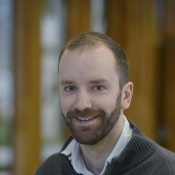
Dr Robert A Holland, University of Southampton, UK

Dr Robert A Holland, University of Southampton, UKRobert Holland is a Senior Research Fellow at the University of Southampton whose work focuses on the interactions between energy system, natural capital and biodiversity. His research seeks to promote greater collaboration between researchers and policy makers in the energy and environment communities to ensure that the identification of routes to net zero explicitly consider the broader environmental implications. Currently his work focuses on improving our ability to model the international environmental impacts of national energy policy taking mediated through trade. |
Chair

Dr Dee Hennessy, Creative Exchange, UK

Dr Dee Hennessy, Creative Exchange, UK
Following a career in theatre and the arts, Dee Hennessy has become a leading group creativity facilitator and coach. She is also a researcher and social innovator. Since 1999 she has worked with governments, public sector agencies, universities, research councils, companies, third sector organisations and partnerships to develop strategies, ideas, innovative solutions, teams and individuals. She does this by designing and delivering new formats and unlikely, unexpected and uniquely effective processes for getting people involved, energised and focused. Dee has facilitated successful engagement and impact workshops, strategy events, seminars, sandpits, team development events, meetings and conferences. Her PhD and related academic research introduced and tested innovative and robust methods for knowledge exchange and she is now focused on the possibilities of breaking new ground in this new world of virtual encounters.
|
The future of the UK energy mix
Looking ahead at the transition from fossil fuels at some of the technologies and solutions that already exist nationally and locally and the role they will play. 
Mr Patrick Allcorn, Department of Business, Energy and Industrial Strategy, UK

Mr Patrick Allcorn, Department of Business, Energy and Industrial Strategy, UKPatrick has led the local energy team in BEIS since October 2015. Before joining local energy he worked in the Heat Strategy team where he developed a range of community energy initiatives and led the team that developed and launched the domestic Renewable Heat Incentive. Previous to joining DECC in 2009, Patrick spent 10 years as a sustainable transport officer where he set up the Smarter Travel team for Transport for London. The team developed school and workplace travel plans as well as some of the initial programmes around community travel plans and destination travel plans including ideas for the 2012 Olympic bid. |
|
Land use considerations for meeting net zero

Dr Daniel McGonigle, Defra, UK

Dr Daniel McGonigle, Defra, UKDan McGonigle is Head of Systems Research at Defra. His team is responsible for systems analysis on cross-cutting and emerging topics. He previously worked as a programme leader on international land management in the CGIAR and as head of sustainable land and soils at Defra. |
Chair

Dr Dee Hennessy, Creative Exchange, UK

Dr Dee Hennessy, Creative Exchange, UK
Following a career in theatre and the arts, Dee Hennessy has become a leading group creativity facilitator and coach. She is also a researcher and social innovator. Since 1999 she has worked with governments, public sector agencies, universities, research councils, companies, third sector organisations and partnerships to develop strategies, ideas, innovative solutions, teams and individuals. She does this by designing and delivering new formats and unlikely, unexpected and uniquely effective processes for getting people involved, energised and focused. Dee has facilitated successful engagement and impact workshops, strategy events, seminars, sandpits, team development events, meetings and conferences. Her PhD and related academic research introduced and tested innovative and robust methods for knowledge exchange and she is now focused on the possibilities of breaking new ground in this new world of virtual encounters.
Creating a business case for corporate decision-making for the inclusion of ecosystem considerations in energy decarbonisation
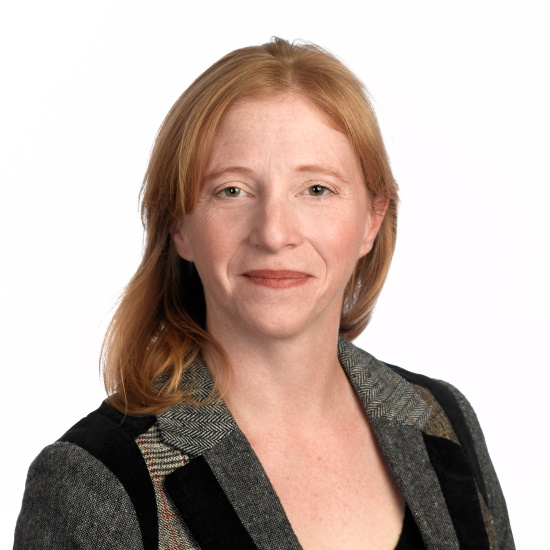
Ms Jessica Fox, Electric Power Research Institute (EPRI), USA

Ms Jessica Fox, Electric Power Research Institute (EPRI), USAJessica Fox is a Senior Technical Executive at the Electric Power Research Institute (EPRI), a non-profit scientific research organization. She has led EPRI’s $15M per year Water and Ecosystem research team and is an expert in environmental markets and 'credit stacking', ecosystem services, and corporate sustainability. Fox created the EPRI Ohio River Basin Water Quality Trading Project, which is the world’s first interstate trading program for nutrients (http://wqt.epri.com) and won the United States Water Prize in 2015. Fox led EPRI’s Energy Sustainability Interest Group from 2011 through 2016 to become the largest collaborative forum in the industry to strategically advance critical issues related to the sustainable generation and distribution of electricity, including consensus by 45 utilities on sustainability metrics to use to benchmark their companies’ performance (www.epri.com/sustainability). She launched EPRI’s internal corporate social responsibility program in 2016 under EPRI’s Chief Sustainability Officer and CEO, with oversight from EPRI’s Board of Directors. In 2017, Fox was recognized as Top Innovator (The Fantastic Forty) by Public Utilities Fortnightly. In 2018, Ms Fox launched the EPRI Power-in-Pollinators Initiative http://www.epri.com/pollinators, which already is the largest effort in North America focused specifically on pollinator conservation at electric power companies. In 2020, she was selected as the single Fortnightly Foremost Innovator in environmental protection in the electric power industry for her work on pollinator research. Her projects have been covered by the Wall Street Journal, The Economist, National Public Radio, Bloomberg, and others. She is a trained 'Master Facilitator' and conflict resolution mediator, a member of the United States Ecological Society of America, and a Certified Habitat Steward by the National Wildlife Federation. Ms Fox has hosted and organized and hosted over 50 workshops to advance clean energy, electric power company sustainability, and consideration for water and ecosystems in our power system. She has authored or coauthored over 75 publications, including compiling 3 books. She previously worked as a molecular biologist leading conservation genetics projects on dragonflies in Costa Rica, at Stanford University sequencing and mapping the human genome, as a manager at a biotech start-up company developing DNA analysis technologies, and as invasive weed field biologist for US Bureau of Land Management. She has a Bachelor’s of Science from University of California at Davis, and a Master’s of Science from Stanford University. https://www.linkedin.com/in/jessica-fox-680b6515/ |
|
|
Local Government's response to the climate emergency
The Committee on Climate Change has highlighted the important role Local Government must play in responding to the climate emergency. The majority of English Councils have responded to public demand and declared climate emergencies in 2019. The scope of council's to act can be constrained by statutory responsibilities and available budgets. Nevertheless, many are pushing for their regions to be net zero well in advance of the national timetable. This session will give a perspective of the challenges faced by decision makers in reconciling responsibilities such as planning, housing, environmental management and economic growth with the ambition for transformational action. Can the sometimes-challenging economic case for investment be overcome by considering the wider social and environmental benefits? 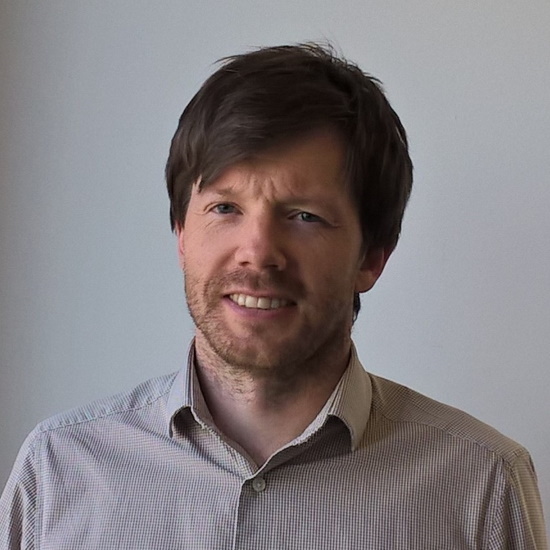
Mr James Johnson, Local Energy North West Hub, UK

Mr James Johnson, Local Energy North West Hub, UKJames Johnson is the progamme lead for Local Energy North West Hub. James works with public sector organisations, energy networks, developers and Industry to respond to energy policy and the climate agenda. James is a specialist in energy in the built environment with a Masters in Building Services Engineering and Sustainable Energy. A Chartered Engineer (CEng) and Member of the Chartered Institute of Building Services Engineers (CIBSE). Local Energy North West Hub supports organisations across the North West of England to identify, develop and implement energy projects. The programme is supported by central government and is overseen by the five local enterprise partnerships in the North West of England. |
Chair

Dr Dee Hennessy, Creative Exchange, UK

Dr Dee Hennessy, Creative Exchange, UK
Following a career in theatre and the arts, Dee Hennessy has become a leading group creativity facilitator and coach. She is also a researcher and social innovator. Since 1999 she has worked with governments, public sector agencies, universities, research councils, companies, third sector organisations and partnerships to develop strategies, ideas, innovative solutions, teams and individuals. She does this by designing and delivering new formats and unlikely, unexpected and uniquely effective processes for getting people involved, energised and focused. Dee has facilitated successful engagement and impact workshops, strategy events, seminars, sandpits, team development events, meetings and conferences. Her PhD and related academic research introduced and tested innovative and robust methods for knowledge exchange and she is now focused on the possibilities of breaking new ground in this new world of virtual encounters.
|
Developing a natural capital ethos within the solar energy sector
Solar parks present a unique opportunity to tackle the twin crises of biodiversity loss and climate change. Research has shown that targeted interventions and sustainable land management practices can increase natural capital and deliver environmental net gain within solar parks, while simultaneously providing clean zero carbon electricity. This talk will address the natural capital value solar can deliver, and what the UK solar industry is doing to embed best practice in the design from the early planning stages through to implementation. 
Mr Cameron Witten, Solar Energy UK, UK

Mr Cameron Witten, Solar Energy UK, UKCam has over a decade of experience in environmental policy and advocacy. Cam joined Solar Energy UK in February 2020 to head up the policy team, with a focus on utility-scale solar and storage development, operations, and technical asset management. Cam’s background is in conservation and land management policy. Prior to joining the STA, he was Head of Policy at National Parks England and spent 5 years as a Government Relations and Budget Specialist at The Wilderness Society in Washington, DC. |
|
Managing marine environments for energy, ecology and society
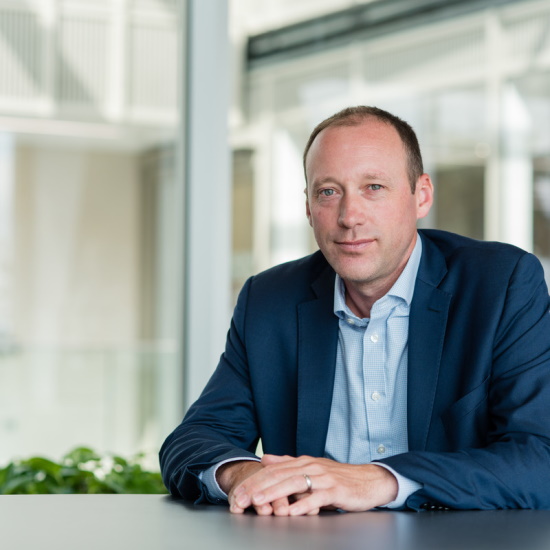
Mr Will Apps, The Crown Estate, UK

Mr Will Apps, The Crown Estate, UKWill is the Head of Energy Development for The Crown Estate, the specialist real estate business that manages the seabed around England, Wales and Northern Ireland. Will’s portfolio includes the offshore wind seabed resource, project origination and leasing, and wind farm projects during the consenting and development phase as developers progress to ‘ready-to-build’. Will is a chartered civil engineer with experience of infrastructure projects and investment programmes in the water and power industries, both in the UK and overseas. |
|
|
Multi-purpose land management for renewable energy, ecosystem services and food
Multifunctional land use refers to the delivery of multiple benefits (food and non-food agricultural production activities, ecosystem services) from land over a variety of temporal and spatial scales. Reform of UK agricultural policy, together with the urgent need for climate action towards net zero emissions, requires farmers, land managers and policy decision makers to move away from regarding land as having a single purpose. Examples of multifunctional landscapes include solar farms with sheep grazing and agri-environmental features around margins (eg enhanced hedgerows with occasional hedgerow trees); wind farms with arable crops and/or grazing (subject to some machinery limitations, as for power lines); and perennial energy crops harbouring wildlife due to limited disturbance, providing flood-tolerant/flood mitigation land cover on a floodplain – as well as (in the case of willow) a source of early-season pollen an interesting new public amenity (where footpaths cross or border such land). However, concerns have been raised about the scale of recent ground-mounted solar installations, now being proposed without government incentives as the cost of the technology has fallen. These are typically 5-10 times larger than the government-supported solar farms being constructed some 5-7 years ago. In collaboration with others such as Solar Energy UK, the NFU hopes that good practice guidance for these much larger projects will also enable multi-purpose land use for biodiversity and small grazing livestock alongside energy production, as a source of diversification income at a time of significant uncertainty for our industry. 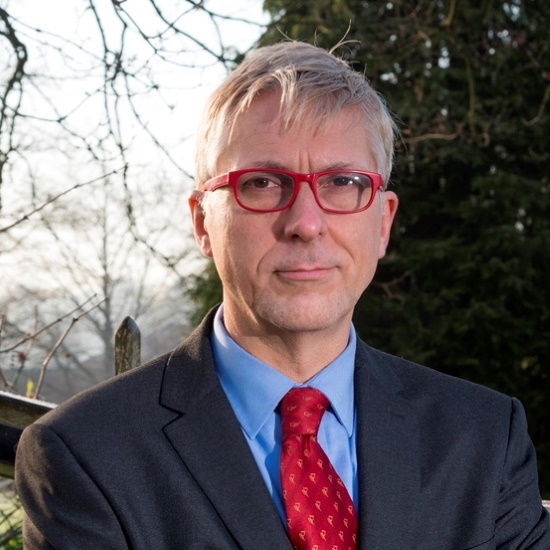
Dr Jonathan Scurlock, National Farmers Union (England and Wales), UK

Dr Jonathan Scurlock, National Farmers Union (England and Wales), UKSince 2007, Jonathan Scurlock has led on analysis and advice about energy and climate change to the NFU's management, office holders and members. His background is in university and government research, covering energy and climate policy, plant physiology, bioenergy and other renewables. He was educated at Oxford and London, and is a Visiting Fellow at the Open University. |
Chair

Dr Dee Hennessy, Creative Exchange, UK

Dr Dee Hennessy, Creative Exchange, UK
Following a career in theatre and the arts, Dee Hennessy has become a leading group creativity facilitator and coach. She is also a researcher and social innovator. Since 1999 she has worked with governments, public sector agencies, universities, research councils, companies, third sector organisations and partnerships to develop strategies, ideas, innovative solutions, teams and individuals. She does this by designing and delivering new formats and unlikely, unexpected and uniquely effective processes for getting people involved, energised and focused. Dee has facilitated successful engagement and impact workshops, strategy events, seminars, sandpits, team development events, meetings and conferences. Her PhD and related academic research introduced and tested innovative and robust methods for knowledge exchange and she is now focused on the possibilities of breaking new ground in this new world of virtual encounters.
|
Discussion: evolving policy and practice
Where is policy and practice failing and where is it succeeding? 
Dr Jeanette Whitaker, UK Centre for Ecology & Hydrology , UK

Dr Jeanette Whitaker, UK Centre for Ecology & Hydrology , UKDr Jeanette Whitaker is a biogeochemist with 23 years' research experience in plant-soil ecology and biogeochemistry. Her interests include the effects of climate change, land use change and land management on soil carbon sequestration; the sustainability of perennial bioenergy crops; land-based greenhouse gas removals eg biochar; and the translation of scientific evidence to inform policy and decision making. Jeanette has led projects for NERC, EPSRC, BEIS and the Climate Change Committee including a NERC Knowledge Exchange Fellowship in Bioenergy sustainability where she worked with UK policymakers, industry and NGO's to inform the expansion of a sustainable bioenergy feedstock production in the UK. She currently leads a £2M NERC grant on soil carbon sequestration investigating the potential to increase soil C stocks through land management, and sits on the UKRI Energy Programme Science Advisory Committee. 
Professor Andrew Lovett, University of East Anglia, UK

Professor Andrew Lovett, University of East Anglia, UKAndrew Lovett is a Professor of Geography in the School of Environmental Sciences at the University of East Anglia. He is currently involved in several research projects concerned with energy-environment interactions including ADVENT (https://ukerc.ac.uk/research/advent/), the Energy, Environment and Landscapes Theme of UKERC Phase 4 (https://ukerc.ac.uk/research/environment/) and IRENES (https://www.interregeurope.eu/irenes/) which is examining the integration of renewable energy and ecosystem services in environmental and energy policies. 
Dr Jonathan Scurlock, National Farmers Union (England and Wales), UK

Dr Jonathan Scurlock, National Farmers Union (England and Wales), UKSince 2007, Jonathan Scurlock has led on analysis and advice about energy and climate change to the NFU's management, office holders and members. His background is in university and government research, covering energy and climate policy, plant physiology, bioenergy and other renewables. He was educated at Oxford and London, and is a Visiting Fellow at the Open University. 
Professor Nicola Beaumont, Plymouth Marine Laboratory, UK

Professor Nicola Beaumont, Plymouth Marine Laboratory, UKProfessor Nicola Beaumont is an internationally recognised specialist in the assessment and valuation of ecosystem services. She has a sustained publication record (Google H-index 27, 7,800+ cites) and has acted as PI or co-I on an extensive range of projects. Nicola has managed more than £3.8million of research funding as PI including leading two large (£1.2million+) multi-institute collaborative projects. She considers the communication of research to academics, policy makers, managers and user groups to be a critical aspect of her career. Nicola’s research has recorded impact in the policy sphere, including underpinning the designation of marine conservation zones and shaping government policy such as the Marine Bill and the Natural Environment White Paper. Nicola sits on several international and national committees, including the NERC Science Committee and the UK Productive Seas Evidence Group (PSEG) reporting directly to UK government. |
